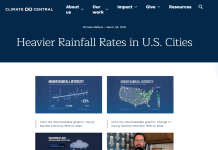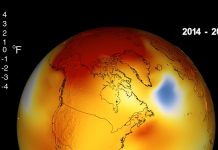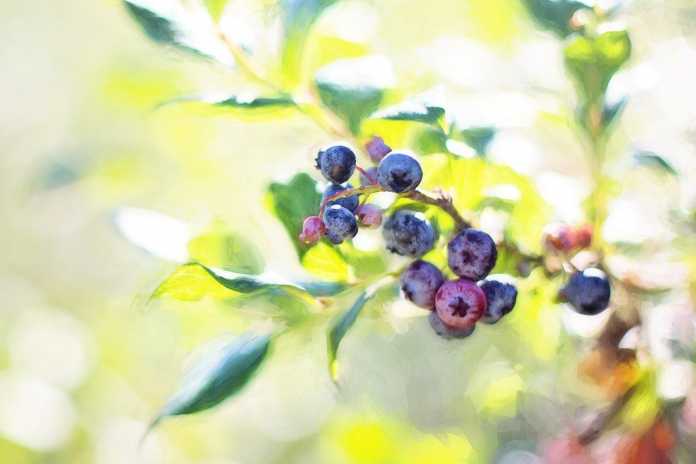Among its top search results today for “climate change,” Google News is promoting a story published by AZO CleanTech claiming global warming threatens blueberry harvests in Maine. However, data from the United Nations Food and Agriculture Organization (FAO) and the U.S. Department of Agriculture show blueberry production and yields in Maine, in the United States, and throughout the world have set records over the past few decades.
Record harvests have also been regularly set in the United States and Maine. Wild blueberry harvests in Maine track blueberry prices not rainfall patterns. Data show, as a general rule, harvests fall after sharp price declines, and increase following price increases.
The AZO CleanTech story, titled “Wild Blueberry Fields in Down East Maine are Warming Faster than Previously Thought,” cites a new study by researchers from the University of Maine discussing the impacts of climate change on temperatures and moisture in the Down East region of Maine, and the effects they have had on Maine’s wild blueberry harvests over the past four decades.
“Increasing temperatures at Down East [region of Maine] wild blueberry fields induced increased possible evapotranspiration, or water loss, over 40 years,” asserts AZO CleanTech. “The continuation of water loss could affect the water supply for crops and … the combined effects of warming and higher probable evapotranspiration could affect the health and yield of wild blueberry, the researchers noted.”
If some small area of Maine has experienced declining rainfall over the past four decades, it is bucking a trend for the United States as a whole. The United Nations Intergovernmental Panel on Climate Change reports with “high confidence” that precipitation has increased over mid-latitude land areas of the Northern Hemisphere (including the United States) during the past 70 years, while IPCC has “low confidence” about any negative trends globally.
Thankfully, the National Oceanic and Atmospheric Administration (NOAA) keeps detailed records of precipitation in Maine and throughout the nation. As shown in the two NOAA graphics below, Maine precipitation is increasing over time as the Earth modestly warms, not decreasing.
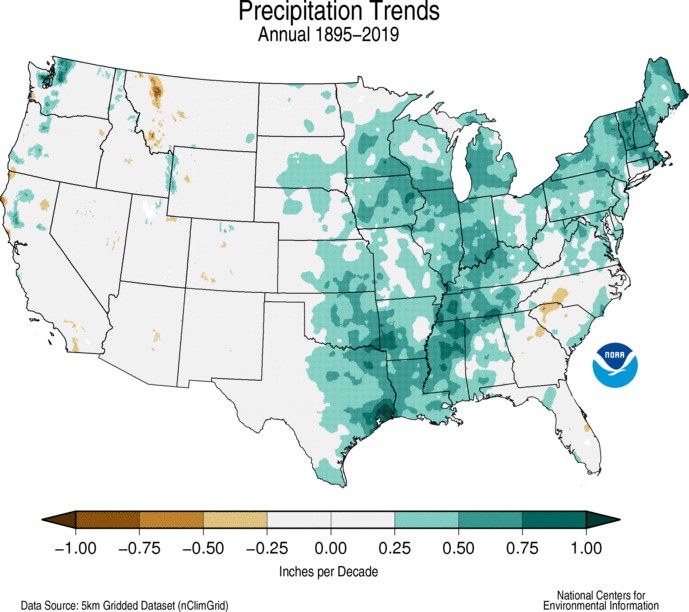
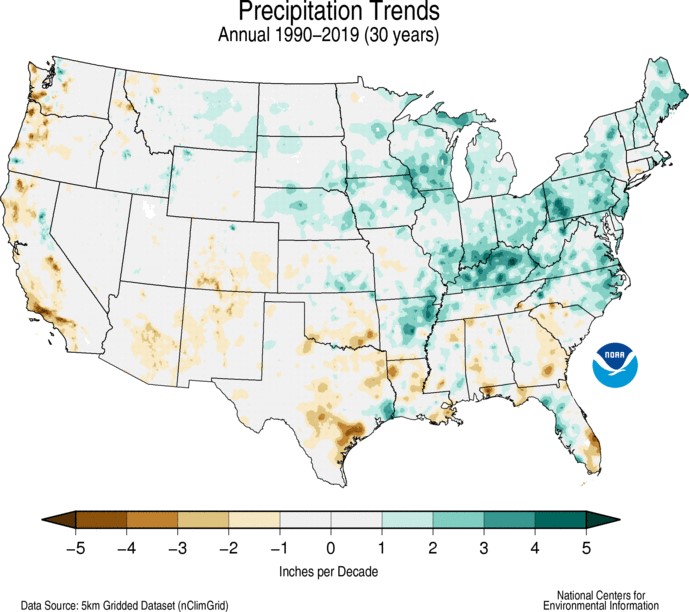
Nor has a change in moisture seemingly dampened blueberry production in Maine or worldwide. Despite the normal ups and downs of yearly harvests, United Nation’s Food and Agriculture Agency data show blueberry harvests set new records 22 times between 1980 and 2019, covering the period of the study, most recently in 2019. Between 1980 and 2019, global blueberry production increased by more than 1,016 percent.
In the United States, blueberry harvests have set records 24 times since 1980, with the most recent record harvest coming in 2019. Between 1980 and 2019 blueberry production in the United States increased by approximately 566 percent.
Maine has been at the forefront of this growth. Maine is the largest producer of wild blueberries in the world, and the state produces 10 percent of all blueberries in North America, including wild and cultivated production. Since 1980, Maine’s wild blueberry harvest has set records seven times. Harvests have not dipped below 1980’s production level since then.
When Maine wild blueberry production does decline in a given year, data show the harvest of wild blueberries in Maine closely tracks the price per pound. With few exceptions, less acres are harvested and fewer wild blueberries are picked in the year after a price decline, and more acres harvested and more blueberries are picked in the year following a price increase [See the figure].
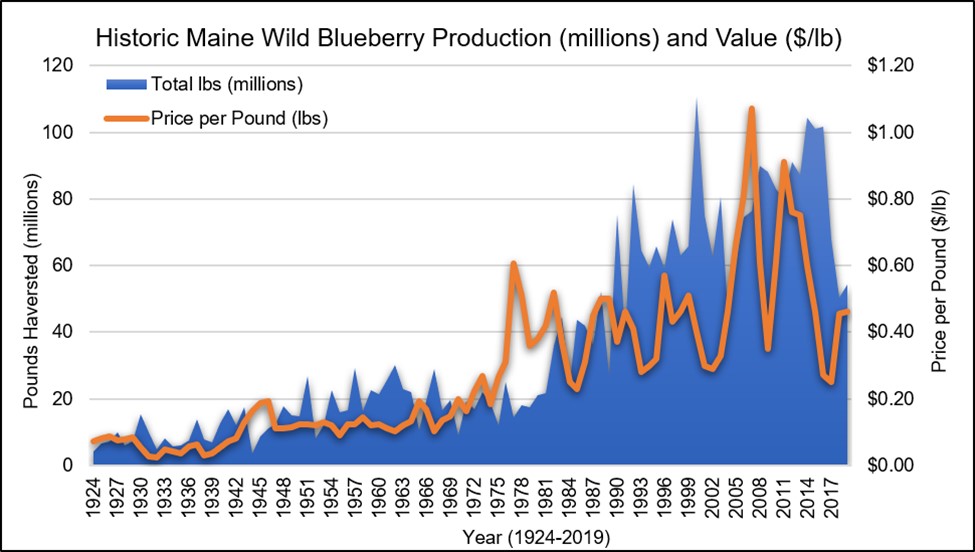
Lily Calderwood and David E. Yarborough, Cooperative Extension: Maine Wild Blueberries, The University of Maine, 2019, https://extension.umaine.edu/blueberries/factsheets/statistics-2/crop-production-statistics-2019/
The evidence indicates Maine’s blueberry producers rationally respond to price signals. They exert less effort to harvest wild blueberries when prices are low, and put-in more effort to harvest the crop when prices are higher. No one can know for sure what the future holds for wild or cultivated blueberry production. It’s wise for blueberry cultivators and wild harvesters to plan for whatever type of climate the future may hold, but the evidence thus far indicates modest warming has benefited blueberry harvests.



